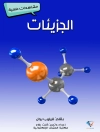Proteostasis is central to the development of various human diseases caused due to excessive protein misfolding and the disregulation of the protein quality control system. In this book, respected researchers from many leading institutions contribute their insights on proteostasis maintenance. The coverage mainly focuses on the basics of maintaining proteostasis, the consequences of proteostatic system failure, and how chaperone systems constantly maintain proteostasis. In addition, the book presents in detail different treatment strategies for diseases caused by proteostatic system failure, as well as the inhibition of proteostatic failure using small molecule compounds. It examines advances in the modulation of proteopathies, providing a comprehensive source of key mechanistic insights on these diseases. As such, the book offers a valuable resource for beginners and more experienced investigators alike who are looking for detailed and reliable information on protein homeostasis, the diseases that can develop due to related imbalances and the essential role of molecular and chemical chaperones.
Cuprins
Part 1: Maintaining Proteostasis.- 1. Structural Allostery and Protein-Protein Interactions of Sin3.- 2. Protein Posttranslational Modifications: Role in Protein Structure, Function and Stability.- 3. Protein Folding and Aggregation: A revisit of basic conception.- Part 2: Proteopathy: Failure of proteostasis.- 4. Protein Folding: From Normal Cellular Function to Pathophysiology.- 5. Protein Misfolding Diseases: In perspective of Gain and loss-of-function.- 6. Amyloid formation in Alzheimer’s disease.- 7. Advances in modulation of Proteopathies, the devil spread from head to toe.- Part 3: Chaperone surveillance of proteopathy.- 8. Small Molecule Osmolytes can Modulate Proteostasis.- 9. Pharmacological Chaperones in Protein Aggregation Disorders.
Despre autor
Dr. Laishram R. Singh is an Assistant Professor in the University of Delhi. He obtained his Master’s Degree from Jamia Millia Islamia, New Delhi. After receiving Doctoral degree in protein Biophysics from Jamia Millia Islamia, New Delhi, Dr. Singh continued his postdoctoral research at Fox Chase cancer Center, Philadelphia (FCCC). During his Doctoral study he was engaged in investigating how small molecule compounds affect native protein structure, stability and enzymatic catalysis. At FCCC his main research interest encompasses understanding the Proteostasis and modulators of mutant proteins including, mutants of p53, cystathionine beta synthase and methyl tetrahydrofolate reductase. Currently Dr. Singh (at Delhi University) is working how the dysregulated proteostasis, which is the common hallmark of many neurodegenerative and metabolic disorders, could be reversed. Dr. Singh is a well-known enzymologist and protein biochemist. He has published more than 37 publications in many esteemed journals in the field of proteostatic regulation by small molecules and various heat shock proteins. Dr Singh is also a recipient of Elizabeth Knight Peterson Fellowship sponsored by FCCC, Philadelphia.
Tanveer A. Dar is Assistant Professor in Clinical Biochemistry, University of Kashmir, Srinagar, Jammu and Kashmir, India. He received his Masters in Biochemistry from Hamdard University, New Delhi, India in 2003 and Ph D in Biosciences from Jamia Millia Islamia, New Delhi in 2009. After completing his Ph D, he joined Post-doctoral fellowship with Prof. Bruce E. Bowler in University of Montana, USA. His main research area is protein structural biology and medicinal plant proteomics. He has published more than 20 research papers in reputed international journals in the field of protein folding and their stability in presence of small molecules solutes. He is a recipient of the Junior Research Fellowship and Senior Research Fellowship by CSIR, New Delhi, India. Hewas recently selected as INSA-Visiting fellow for the year 2014-2015. Dr. Dar is actively involved in various projects as principal investigator and Co-Investigator with funding from various reputed national funding agencies like Department of Biotechnology and Department of Science and Technology, Govt. of India, New Delhi. His current research focuses on modulation of protein fibrillation/aggregation by chemical chaperones and characterization of therapeutically important proteins from medicinal plants.
Dr. Parvaiz is Senior Assistant Professor in Department of Botany at Sri Pratap College, Srinagar, Jammu and Kashmir, India. He has completed his post graduation in Botany in 2000 from Jamia Hamdard, New Delhi, India. After receiving Doctorate degree from Indian Institute of Technology (IIT), Delhi, India, he joined International Centre for Genetic Engineering and Biotechnology, New Delhi in 2007. His main research area is Stress Physiology and Molecular Biology. He has published more than 40 research papers in peer-reviewed journals and 35 book chapters. He is also an Editor of 14 volumes (1 with Studium Press Pvt. India Ltd., New Delhi, India, 9 with Springer NY USA, 3 with Elsevier USA and 1 with John Wiley). He is a recipient of the Junior Research Fellowship and Senior Research Fellowship by CSIR, New Delhi, India. Dr. Parvaiz has been awarded the Young Scientist Award under Fast Track scheme in 2007 by the Department of Science and Technology (DST), Govt. of India. Dr. Parvaiz is actively engaged in studying the molecular and physio-biochemical response of different agricultural and horticultural plants under environmental stress.












